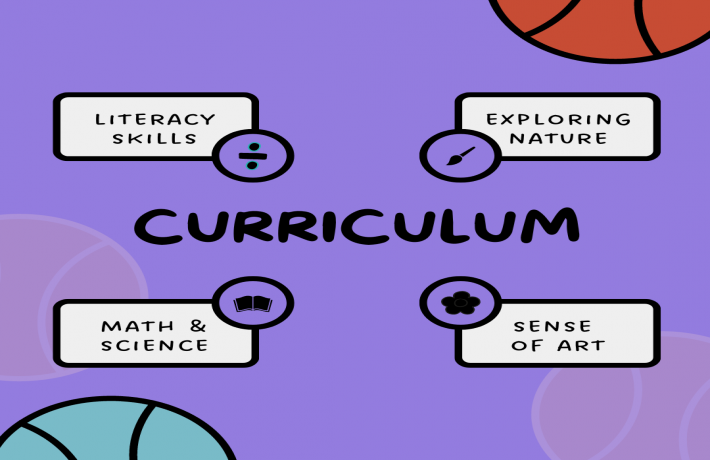
The Pros and Cons of Homeschooling: What Every Parent Should Know
Muhamad Indra Gani | Artikel
By : Mr. Asep Fajar Irawan, S.Pd
English Teacher Of Al-Hadiriyah Islamic School
Parents around the world are faced with the difficult decision of how to best educate their children. With the rise of homeschooling, many parents are considering this alternative educational option. Homeschooling can provide a variety of benefits, such as a tailored curriculum and flexible schedule, but there are also a few drawbacks that every parent should be aware of. In this article, we will discuss the pros and cons of homeschooling so that parents can make an informed decision about the best educational option for their family. With the right information and support, parents can create the perfect learning environment for their children.
What is homeschooling?
Homeschooling is a form of alternative education where children are educated outside of a traditional classroom setting, usually at home. Parents are in charge of designing and teaching their child’s curriculum in a way that works best for their family. Depending on the state, there may be different requirements, regulations, and/or certifications that a parent needs to follow in order to legally homeschool their child. Homeschooling is on the rise, with an estimated 2.25 million children being home educated. This increase in popularity may be due to a variety of benefits and drawbacks associated with homeschooling.
Benefits of homeschooling
- Flexibility - Parents can create an individualized curriculum that works best for their child. They can customize their child’s lesson plans by taking into account their interests and learning style. This flexibility allows parents to create a schedule that works best for their family. Depending on the state, parents may have the option of working from home, which offers even more flexibility. - Control - Parents have the power to design a course of study that aligns with their own educational philosophy and values. They have the option to incorporate subjects that are not part of the typical curriculum, such as art or music. They can choose to incorporate religious teachings or focus more on academic subjects. - Privacy - Another benefit of homeschooling is privacy. Children learn better when they are not distracted by peers and noise. Being in a controlled environment with fewer distractions allows students to focus better, which can lead to better academic results.
Challenges of homeschooling
- Lack of socialization - One of the most common challenges of homeschooling is the lack of socialization. While peers can provide valuable socialization, they can also be a distraction. Some parents worry that their child is not getting enough socialization through homeschooling, while others worry that their child is not getting the right socialization. - Lack of structure - Many parents worry that their child does not get the necessary structure and discipline through homeschooling. Some parents may be better suited for a structured classroom environment, and homeschooling may not be a good fit for them. - Lack of teacher expertise - Another concern is the lack of teacher expertise. Some parents worry that they are not knowledgeable enough to properly teach their children. Parents who have a more specific idea of what their children should be studying may struggle to find suitable curriculum.
Homeschooling regulations
The requirements for homeschooling vary from state to state, but most states require parents to meet a few basic criteria. Parents must have a curriculum plan in place, keep detailed records of their child’s progress, and administer a standardized assessment at the end of each grading period or semester. The state will also want to ensure that all children are meeting the state’s academic standards. Every state has different regulations for homeschooling. In some states, such as California and New York, parents are required to register with the state and provide proof that their child’s curriculum meets certain academic standards. In other states, such as Texas and Indiana, parents are not required to register or provide any proof that their child is receiving an adequate education.
Homeschooling curriculum
When selecting a curriculum for homeschooling, parents have a variety of options. There are a variety of online curriculum providers, such as Khan Academy and Coursera, as well as traditional textbooks. There are also options such as hybrid learning, where students are expected to spend some of their time online and some of their time in the classroom. Another option is to mix and match subjects from multiple sources. It is important to consider your child’s learning style and interests when selecting a curriculum. For example, if your child is very hands-on, he may do better with an online curriculum that incorporates activities and experiments instead of textbooks.
Homeschooling support groups
Parents who are new to homeschooling may find it helpful to join a support group where they can connect with other parents who are going through the same experience. Joining a Facebook group or participating in an online forum can help you make friends and find support in your area. You can also find support groups in your local area by joining a homeschooling association or connecting with a local homeschool parent. These support groups are a great resource for beginners. You can ask questions, share ideas, and learn from other parents. You can also help other parents who are just starting out. Connecting with other homeschooling parents can help you stay motivated and confident in your decision to homeschool.
Pros and cons of homeschooling
As with any decision, there are pros and cons to homeschooling. It is important to weigh these advantages and disadvantages before deciding to homeschool your child. A common misconception is that homeschooling is the perfect solution for every child. Homeschooling works best for children who are self-motivated, have a certain level of discipline, and are able to thrive in a one-on-one environment. If your child struggles with autonomy, has trouble focusing, or is more suited for a group environment, homeschooling may not be the best option.
Questions to consider when deciding whether to homeschool
- Is your child self-motivated?
- Does your child have the discipline necessary to work independently?
- Are your child’s interests and learning style a good fit for a one-on-one setup?
- Are your child’s strengths academic or more hands-on?
- Is your child able to follow a structured schedule?
- Are your child’s strengths in math and language or other subjects?
- Is your child able to focus on learning without being distracted?
- Is your child able to complete long-term projects?
- Does your child have the motivation to complete his own academic projects?
- Does your child have a strong work ethic?
- Does your child complete his work to a high standard?
- Does your child have a good attention span?
- Does your child have the self-discipline to focus on schoolwork?
- Can your child handle being evaluated on a regular basis?
- Are your child’s strengths in the subjects being tested?
- Does your child have the patience to wait for results?
- Does your child thrive in a one-on-one environment?
Homeschooling success stories
Homeschooling has proven to be a successful educational option for many families around the world. The benefits and challenges of homeschooling are applicable to all families, but every family is different. Regardless of whether you choose to homeschool or go to a traditional school, the most important thing is that your child is learning. With the right support, every child has the potential to thrive in a homeschool setting, whether they prefer to learn through hands-on activities or traditional classroom lectures.




